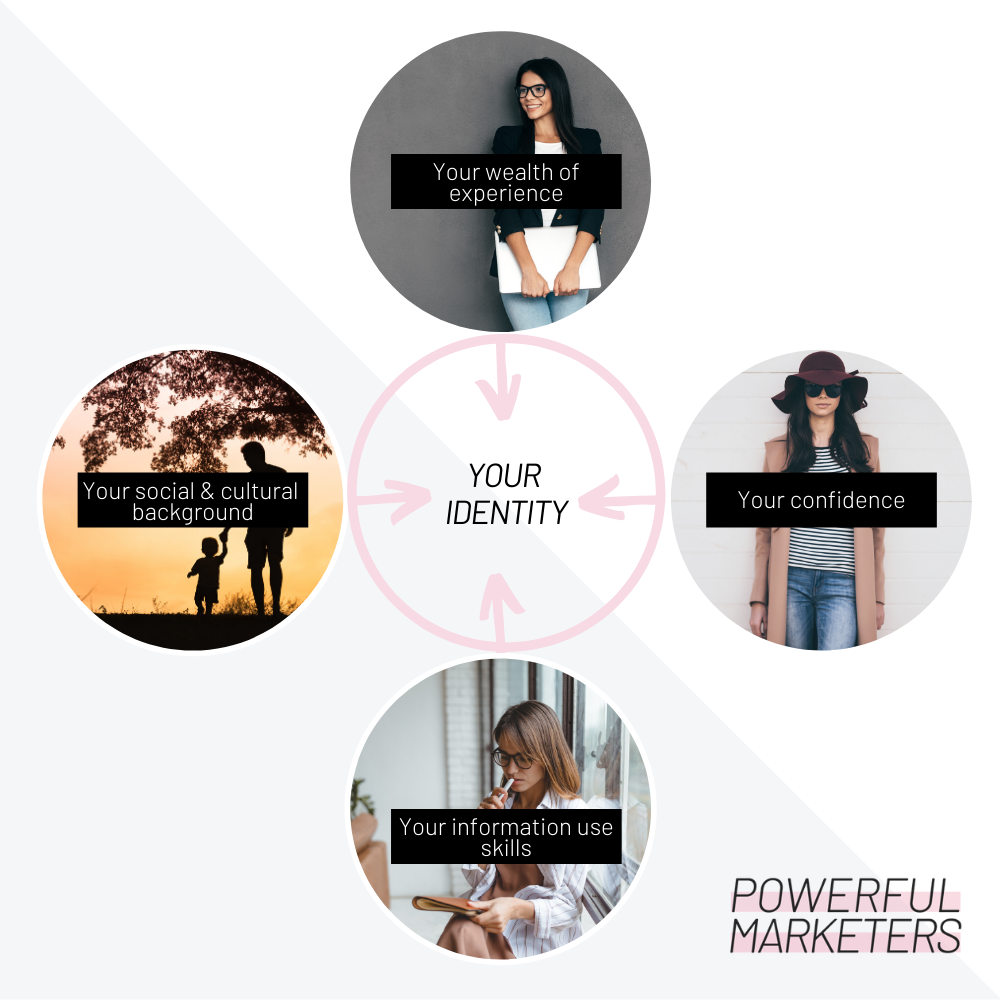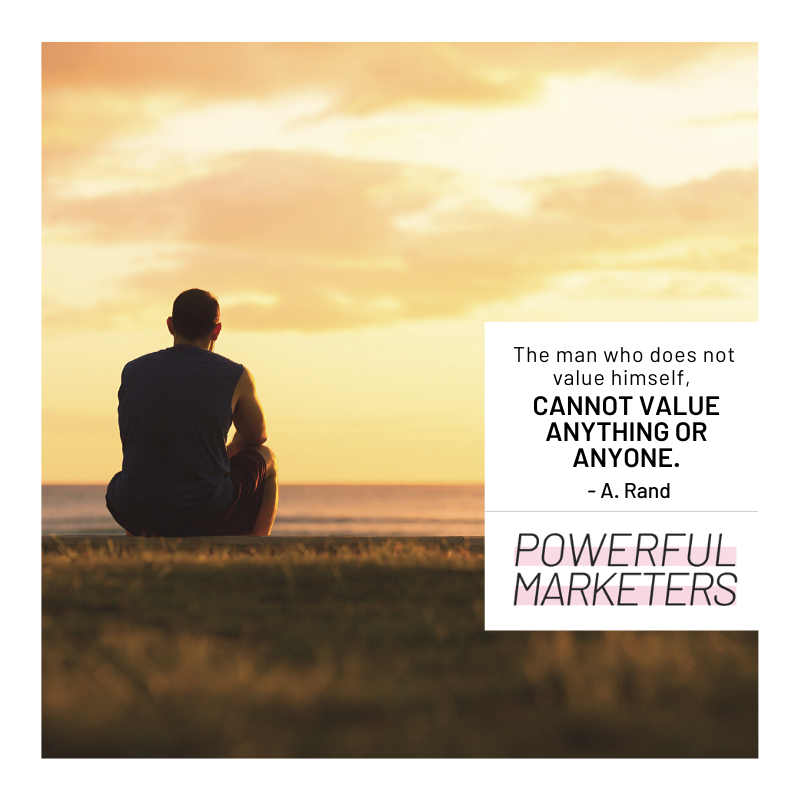By its definition from Wikipedia confidence is:
“a state of being certain either that a hypothesis or prediction is correct or that a chosen course of action is the best or most effective. Confidence comes from a latin word fidere’ which means “to trust”; therefore, having self-confidence is having trust in one’s self.”
Powerful Marketers know that confidence is not just a nice-to-have skill. It’s essential to be able to perform at the highest level and to inspire greatness in others. If you are struggling with your confidence, then it’s crucial that you work with it. And it is very likely that you should also work with your self-esteem. Why both?
Because…
- Self-esteem refers to how you feel about yourself overall; how much esteem, positive regard or self-love you have.
- Self-confidence is how you feel about your abilities and it can vary from situation to situation.
You may have a healthy self-esteem, but low confidence about situations involving certain areas of life (maybe in math or in music, etc). So, self-esteem tends to come hand in hand with your self-confidence.
Where does self-imagination and self-esteem come from?
Traditional psychology tells us that they depend on these four important factors:
- Your social and cultural background
- Your wealth of experience — in other words, that you have acquired the basic professional needs as a marketer
- Your confidence, self-talk, and self-belief
- Your ability to use information.

As for the first two points, your background and your experience are areas in which your control is limited. You might say you’re in charge of what kind of experience you acquire, but you’re not entirely in charge of your interests, and you’ll acquire experience no matter what you do.
As for the last two points, those are the areas in which you have the majority of control. Your confidence and your ability to use information means overcoming challenges, and overcoming your own fears and limitations, thanks to the ability to adapt and not fear any new or difficult situations. This all comes with time. These are not skills that you either have or you don’t. They need ongoing practice, but they are learnable.
Where does confidence come from?
Suzanne Roff, Ph.D. in psychology and founder of Compass Point Consulting is quoted for saying:
“self-confidence doesn’t exist in a vacuum”.
She says confidence is largely built through our dealings with the world. Having the internal sense that one’s actions impact the outside world is a large part of confidence – and in this way, it’s a two-way street. In the words of Suzanne Roff:
“When a goal is identified and accomplished well, confidence can increase”.
And because our personal situations, social networks and relationships with ourselves are ever-changing, confidence is not static, but dynamic – which is a very good thing if you’re looking to build more of it.
Self-confidence comes both from the inside out and the outside in.
There isn’t one thing that leads to confidence. Changing long-held beliefs about yourself and your reactions to others is just one part of the equation. Your confidence is built from the inside-out with:
- inner work: having regular “meetings” with yourself, meditation, therapy, coaching, assertiveness trainings, etc
- outer work: engaging in new activities, getting out of your comfort zone frequently, spending time in a positive and supportive environment

Confidence is a learnable behavior and mindset. It’s a matter of discovering the best tools and resources to help yourself develop it. And you’re the only one who can do it.
The best way to ensure a balanced sense of confidence is to assess yourself realistically.
When your confidence is based firmly on what you know, it’s not only a better guide than having an exaggerated view of yourself; it’s also much more likely to earn the respect of others.
As a marketer, your professional confidence mainly comes from the situations and encounters you have during your work day. Confidence is like a muscle: it needs to be trained. And one of the best ways to train it is by dealing with different types of situations and encounters on a regular basis, because this improves your skills, which, in turn, makes you better and more confident in dealing with these types of situations and encounters.
In marketing, the relevant skill sets are:
- your technical and specialized skills, such as the performance of campaigns and
- your communication skills, which include how you handle situations and people around you
Don’t be afraid of new challenges!
Welcome them wholeheartedly and make a point of trying to discover why they have come. Whenever you’re faced with a new challenge, ask yourself: What lessons is life trying to teach me here, and what are the possible solutions?
In essence, these following factors are what determines your identity and self-esteem in your everyday life:
- the way you overcome obstacles
- the way you adapt to changes
- the way you act in difficult or unfamiliar situations
- the way you analyze and use whatever information is available to you.
Self-esteem and self confidence are different but rarely you can have one without another.
Because self-esteem grows when you are successfully handling your life’s challenges. And how well you are at handling those challenges largely depends on your level of confidence. Confidence & the rise of self-esteem itself are the miracles that happen to you when you make the decision to work with it. Increase your self confidence and your self esteem will follow!
Look the video about the self-esteem & confidence to understand the difference:
“Peace is the result of retraining your mind to process life as it is, rather than as you think it should be.”
Wayne W. Dyer
#powerfulmarketers #confidence #selfesteem #behavior #mindset #changes #obstacles #marketer #challenges #grow #understand #adapt #learn